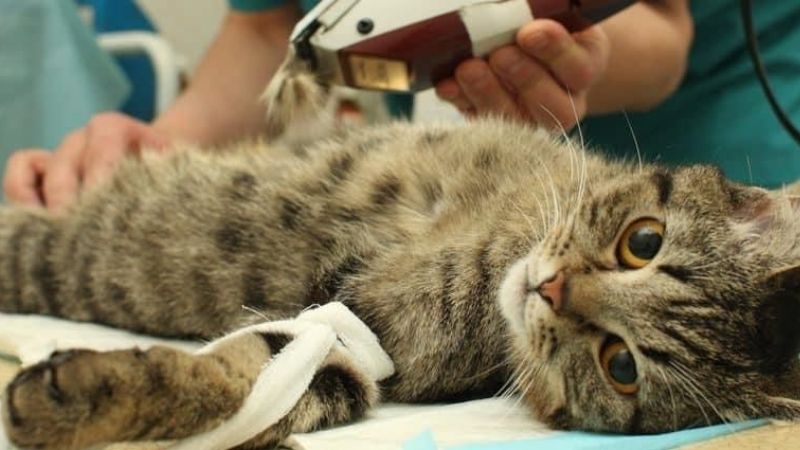Many people mistakenly believe that sterilizing cats can negatively affect their health. However, in reality, there are two sides to the story, and the benefits of sterilization outweigh the potential drawbacks.
1 Should Cats Be Sterilized?
 Reasons to Sterilize Your Cat
Reasons to Sterilize Your Cat
Here are some reasons why sterilizing your cat is a good idea:
Sterilization helps control the cat population and improves their temperament, making them more friendly and less likely to roam, run away, fight, or bite. It also reduces the tendency of male cats to roam and mark their territory with urine, maintaining public hygiene.
How is cat sterilization done?
Sterilization involves surgically removing the cat’s reproductive organs (testicles in males and ovaries in females). It is a complex and challenging procedure that should only be performed by a qualified veterinarian.
Read also: How long do cats live? A guide to understanding your cat’s lifespan
2 Precautions Before Cat Sterilization
 Things to Note Before Sterilizing Your Cat
Things to Note Before Sterilizing Your Cat
The ideal time for cat sterilization is before their first heat cycle, around 6 months of age. Avoid sterilizing during their heat period. Ensure your cat has a full meal 10-12 hours before the surgery to provide adequate nutrition for the procedure. Keep them warm and well-nourished afterward.
Read also: Understanding your cat’s lifespan and age-related needs
3 Advantages and Disadvantages of Cat Sterilization
While cat sterilization offers numerous benefits for both owners and their feline friends, there are also some potential drawbacks to consider.
Benefits of Cat Sterilization
 The Upsides of Sterilization
The Upsides of Sterilization
- Improved health and longevity: Sterilized cats tend to be healthier, live longer, and have fewer diseases.
- Better temperament: Sterilization makes cats more docile and friendly.
- Controlled reproduction and cost savings: Sterilization prevents unwanted pregnancies, saving you money on unexpected litters.
- Reduced genetic defects: Sterilization lowers the risk of passing on congenital defects to future generations.
- Preventing straying and loss: Sterilized cats are less likely to roam and get lost.
- Curbed negative behaviors: Sterilization helps reduce undesirable behaviors and the number of stray cats.
Drawbacks of Cat Sterilization
 The Downsides of Sterilization
The Downsides of Sterilization
- Loss of reproductive ability: Sterilized cats cannot reproduce, which can be sad if you want to breed your cat or if they pass away prematurely.
- Weight gain: Sterilization may cause your cat to gain weight, making care and management more challenging.
In conclusion, understanding the benefits and drawbacks of cat sterilization can help you make informed decisions about your furry friend’s care. Remember to always consult with your veterinarian for personalized advice and guidance.
7 Remedies from Cana Fruit – Find Out What Cana Is and Its Uses
Dive into the valuable health benefits and unexpected uses of Ca na with Dien May XANH! This small, sour fruit from the West has become a favorite among many people despite its minimal economic value. Discover the hidden gems of Ca na today!














